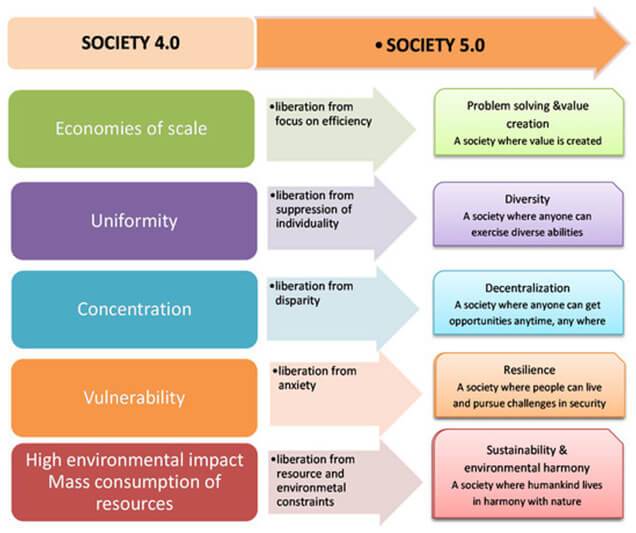As the hospitality industry faces unprecedented challenges due to the ongoing pandemic, effective digital marketing can be the key to helping hotels survive difficult times. With travelers hesitant to venture out and market demand declining substantially, hotels need to adapt their marketing strategies to reach customers in new ways.
This blog post will share eight essential digital marketing tips for hotels looking to stay afloat during tough seasons. From optimizing your website for search engines to engaging with customers on social media, these tips are designed to help you attract new business and retain loyal guests even in challenging times.
So whether you run a boutique hotel or a chain of resorts, read on for some invaluable digital marketing insights that can help your hospitality business thrive when the going gets tough.

Understanding the Importance of Digital Marketing for Hotels
Understanding the importance of digital marketing for hotels is paramount, especially during tough seasons. The Amadeus’ Demand360® data shows that traveler confidence is growing and will continue to do so throughout 2023. Thus, digital marketing strategies should encompass search engine optimization, email, social media, content, and review management to increase visibility among potential guests. By adapting marketing strategies to seasonal trends, and leveraging Google Ads Video Templates, hotels can enhance their marketing campaigns and promote their services in a creative and eye-catching way.
Additionally, understanding local tourism trends and using data analytics for smarter marketing decisions during seasons is essential for hotels to stay on top of their game and drive business. The contribution of tourism marketing to hotel business development should also be emphasized, as it can drive more visitors to the hotel and result in increased revenue. By embracing digital marketing, hotels are better placed to survive tough seasons and attract more guests to enjoy their services.
Identifying Tough Seasons and Their Impact on Hotel Business
Seasonality is a fact of life for hotels. They need to be prepared for the ups and downs that come with it. In section 2 of the blog, the impact of tough seasons and how to identify them is explored. Understanding the impact of slow seasons and their implications is crucial to the survival of any hotel business. By analyzing past data and keeping an eye on current trends, hotels can gain insight that can help them navigate through tough seasons.
Being proactive and adapting to seasonal trends can help hotels stay ahead of the competition. By doing so, hotels can optimize their marketing strategies and communicate effectively with their guests. By preparing for tough seasons, hotels can not only survive but thrive in the challenging times ahead.
Adapting Your Marketing Strategies to Seasonal Trends
Adapting marketing strategies to seasonal trends is crucial for any hotel looking to survive tough seasons. By identifying the times of the year when business is slow, hotels can adjust their approach to attract more customers. This can involve tailoring campaigns and offers specific to the season, such as Christmas promotions, summer packages, or Valentine’s Day offers.
Furthermore, a key part of this strategy is keeping an eye on local events and activities that may attract visitors, such as festivals or sporting events, and aligning marketing efforts accordingly. By doing so, hotels can make the most of these opportunities and stand out in a crowded marketplace. By being proactive and strategic, hotels can maximize their potential during tough seasons and come out stronger in the long run.
Leveraging Google Ads Video Templates for Seasonal Campaigns
It is important to harness the power of Google Ads Video Templates to enhance your digital marketing efforts during busy seasons. This tool can help you create engaging content that showcases your hotel’s offerings and highlights the best seasonal deals. By utilizing this feature, you can easily create professional-looking videos that are tailored to your target audience and distribute them across various social media platforms.
Not only will this help increase your brand visibility, but it will also attract potential guests to your hotel during peak seasons. With the right video template and messaging, you can effectively market your hotel, drive conversions, and boost revenue during tough periods.

Setting Service Priorities and Communicating Effectively During Busy Seasons
During busy seasons, hotels need to prioritize their services to ensure the satisfaction of their guests. This is crucial to surviving tough seasons, and hotels must communicate these priorities effectively. By focusing on providing guests the highest quality service possible, hotels can create a positive reputation that will attract new customers.
Additionally, communication is key in ensuring that guest expectations are met, which can help prevent negative reviews and complaints. Providing clear and concise information about hotel amenities and services and any special offers or promotions will help guests make informed decisions about their stay.
Overall, setting service priorities and effective communication during busy seasons can make all the difference in keeping guests satisfied and, ultimately, ensuring the success of the hotel business.
Staying Aware of Environment and Weather Conditions During Seasons
Staying aware of the environment and weather conditions during seasons is crucial in developing effective marketing strategies for hotels. As mentioned before, identifying tough seasons and their impact on the hotel business is the first step in adapting to seasonal trends. However, understanding the local climate and weather patterns can provide valuable insights into consumer behavior and preferences. For example, during hot summer months, guests may be more interested in poolside amenities and outdoor activities, while during cooler winter months, they may prefer cozy indoor experiences.
By staying attuned to weather patterns and adapting marketing strategies accordingly, hotels can better meet the needs and desires of their guests, enhancing their overall experience and driving business success.

The Contribution of Tourism Marketing to Hotel Business Development
The contribution of tourism marketing to hotel business development cannot be overstated. As discussed in previous sections, understanding the impact of tough seasons on the hotel business and adapting marketing strategies accordingly is essential. Tourism marketing can play a major role here, as it focuses on promoting tourist attractions and activities in the local area, ultimately increasing the number of visitors to the hotel.
By leveraging local tourism trends and effectively communicating with potential guests through various digital marketing channels, hotels can elevate their brand and attract a steady flow of customers. Data analytics can also be used to make smarter marketing decisions, leading to better targeting and ROI.
Furthermore, hotels can differentiate themselves by creatively planning menus that reflect local flavors and seasonal offerings. By implementing these tactics and staying abreast of the latest trends, hotels can survive tough seasons and achieve long-term success.

Understanding Local Tourism Trends and Their Impact on Hotel Business
Understanding local tourism trends is crucial for hotels during tough seasons. By keeping up to date with seasonal patterns and emerging trends, hotels can adapt their marketing strategies and service offerings to cater to the needs and desires of their potential guests.
Additionally, being aware of the impact of local events and festivals on tourism can help a hotel capitalize on increased demand during these times. By understanding the local tourism scene, hotels can position themselves as a top choice for visitors by offering experiences that align with the latest trends and cater to the unique preferences of their guests. This can lead to increased bookings and greater success during tough and competitive seasons.
Using Data Analytics for Smarter Marketing Decisions During Seasons
In order to make smarter marketing decisions during tough seasons, hotels must turn to data analytics. By collecting, analyzing, and visualizing big data, hoteliers can gain valuable insights that will help them adapt their marketing strategies to seasonal trends. With the help of business intelligence, hoteliers can leverage data to make informed decisions about where to spend their marketing budget, which services to prioritize, and how to communicate effectively with customers.
By using AI tools and electronic marketing, hotels can even avoid bias and extract analytics from data to make unbiased choices. With these data-driven strategies, hotels can survive tough seasons and thrive in a competitive market.
Creative Menu Planning as a Marketing Strategy for Hotels During Tough Seasons.
In tough seasons, hotels must develop innovative ideas to attract customers. One way to do this is through creative menu planning. Hotels can tap into the local food culture and appeal to food enthusiasts by offering unique and seasonal dishes. This differentiates a hotel from its competitors and creates a memorable experience for its guests. Hotels can also promote their menus through social media and food blogs to attract foodies to their property.
Additionally, hotels can offer themed dining experiences, such as outdoor barbeques or wine tastings, to create a festive atmosphere and generate positive word-of-mouth. By prioritizing creative menu planning, hotels can increase their revenue and establish themselves as a renowned dining destination.
Conclusion
In conclusion, digital marketing can be a game-changer for hotels during tough seasons. By understanding the importance of adapting to seasonal trends, setting service priorities, and leveraging data analytics, hotels can make smarter marketing decisions to attract customers during slow seasons.
Additionally, staying aware of environmental and weather conditions and local tourism trends and utilizing creative menu planning can also contribute to a hotel’s success during difficult times.
By communicating effectively and offering exceptional service, hotels can distinguish themselves from competitors and build a loyal customer base. With the right marketing strategies in place, hotels can not only survive but thrive during tough seasons.



